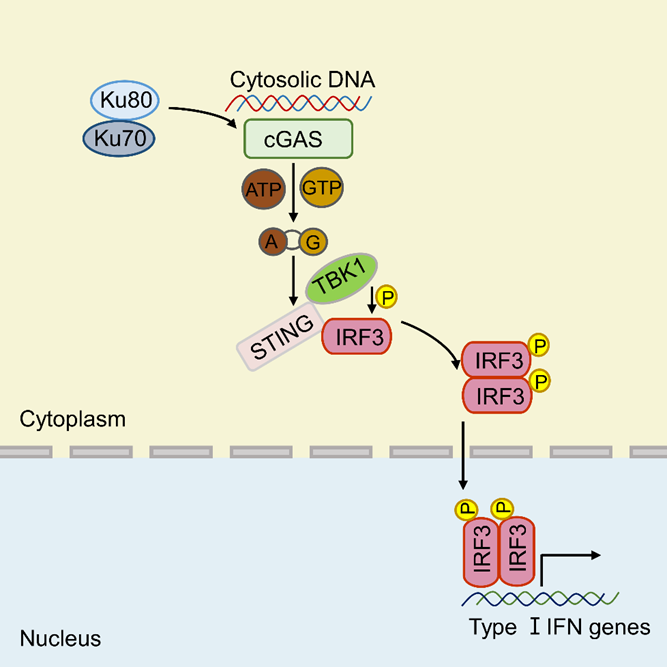The initiation of the innate immune responses relies on the detection of different microbes by multiple pattern recognition receptors. Among these receptors, cyclic GMP-AMP synthase (cGAS) has been identified as a major and universal cytosolic DNA sensor that is independent of specificity of DNA sequence and/or cell type. However, previous studies have suggested that the binding affinity of cGAS to DNA is relatively low, how the low binding affinity between cGAS and DNA still efficiently mediates the innate immune responses remains largely unknown.
In a recent study published in Cell Reports, researcher from the Institute of Zoology of the Chinese Academy of Sciences and Yunnan University revealed that Ku proteins act as co-sensors of cGAS to regulate cGAS-STING signaling pathway.
According to the researchers, upon DNA binding, cGAS undergoes aggregation that leads to the activation of cGAS. Activated cGAS catalyzes the synthesis of the second messenger cyclic GMP-AMP (cGAMP) from ATP and GTP. cGAMP binds to and activates the adaptor protein STING, and STING activates downstream signaling to produce type I interferons and proinflammatory cytokines.
Of note, the direct binding affinity between cGAS and DNA is relatively low, this raises a possibility that co-sensors may act in concert with cGAS to mediate efficient antiviral signaling.
In this study, the researchers identified Ku proteins as positive modulators of the cGAS-mediated signaling pathway. They demonstrated that Ku proteins directly interacted with cGAS, promoted the DNA binding affinity of cGAS, augmented its condensation, and enhanced its enzyme activity to produce more cGAMP, thereby facilitating the activation of cGAS-STING signaling pathway.
This work provides insights into understanding the effective regulatory mechanism of cGAS-mediated innate immune signaling.
This study is supported by the Natural Science Foundation of China and the Open Research Program of the Institute of Zoology.







